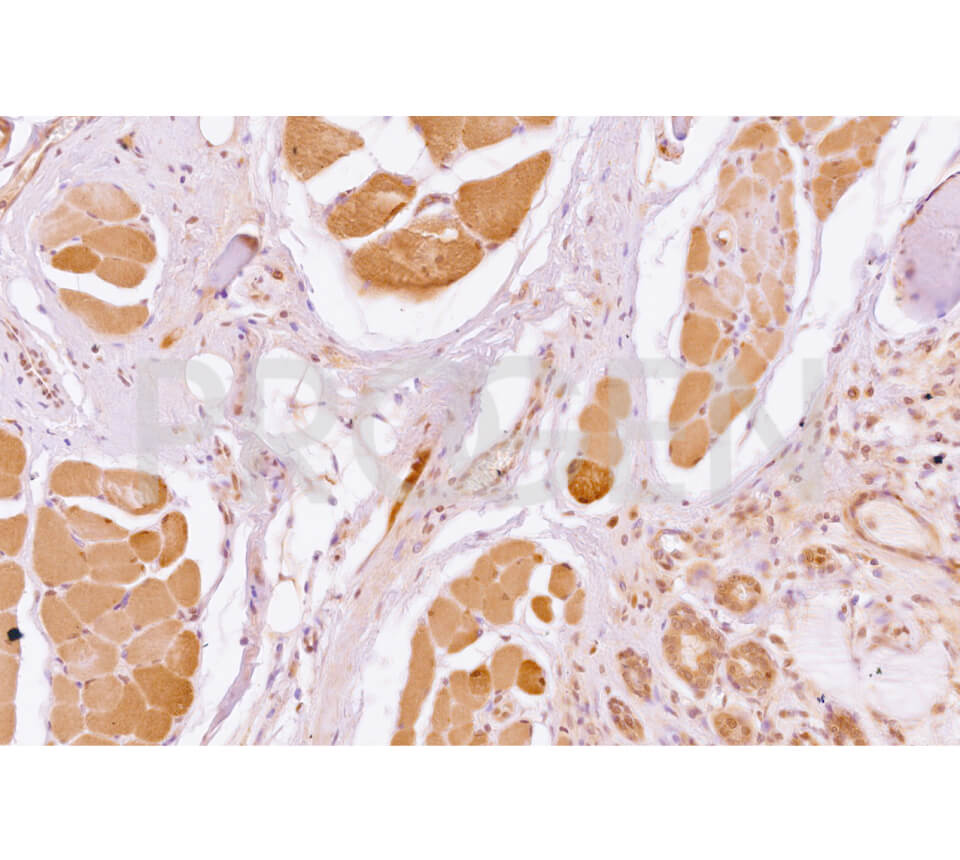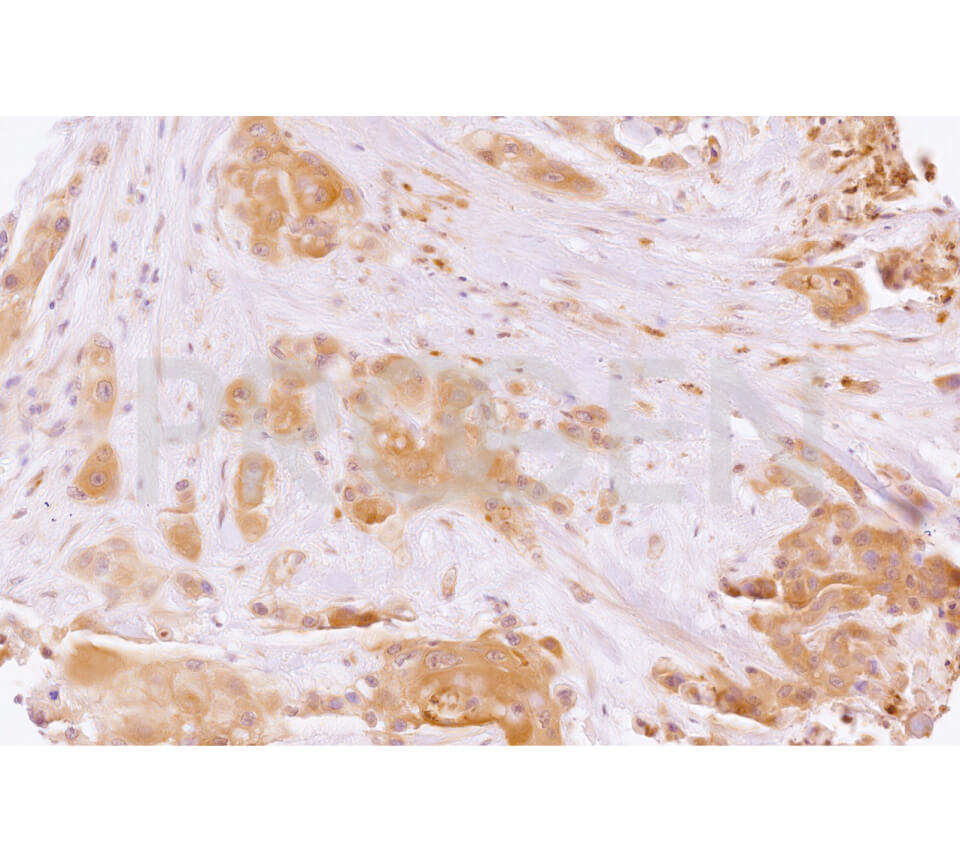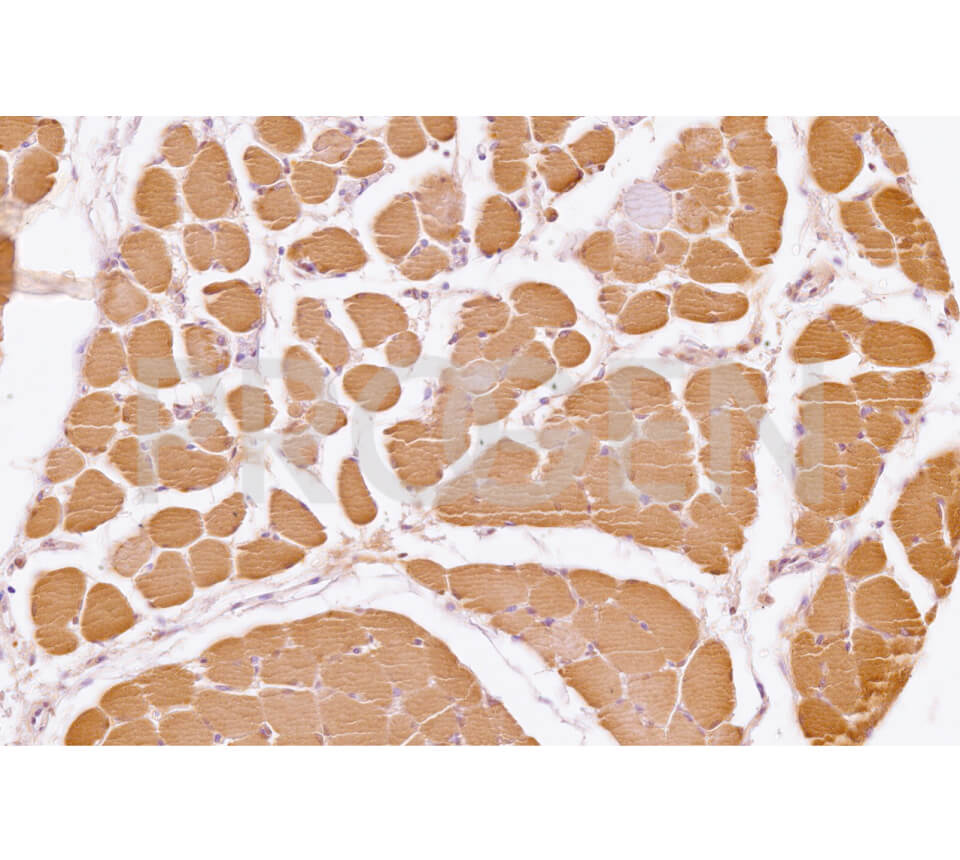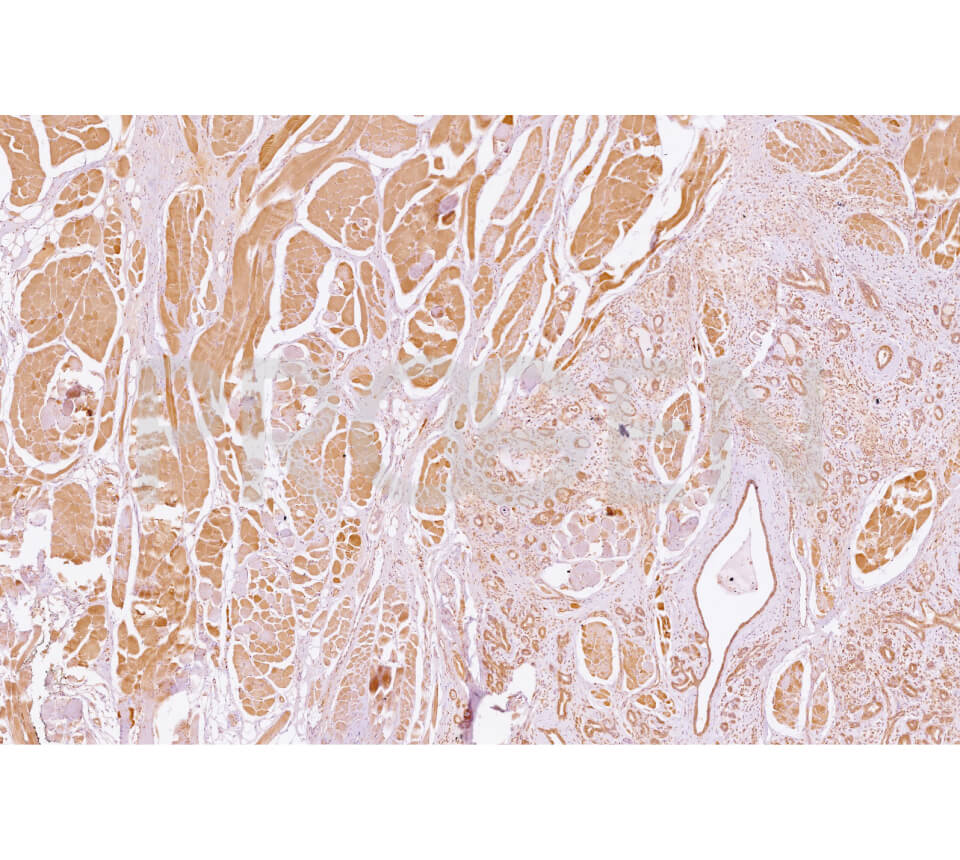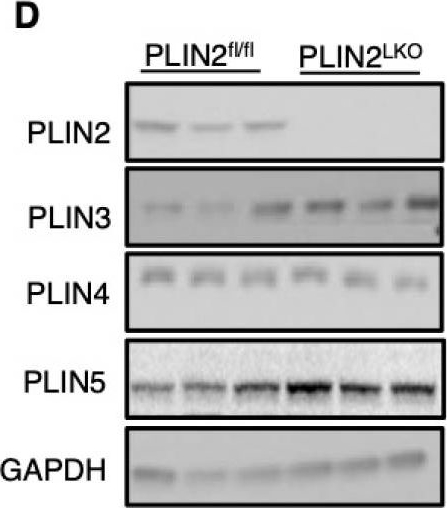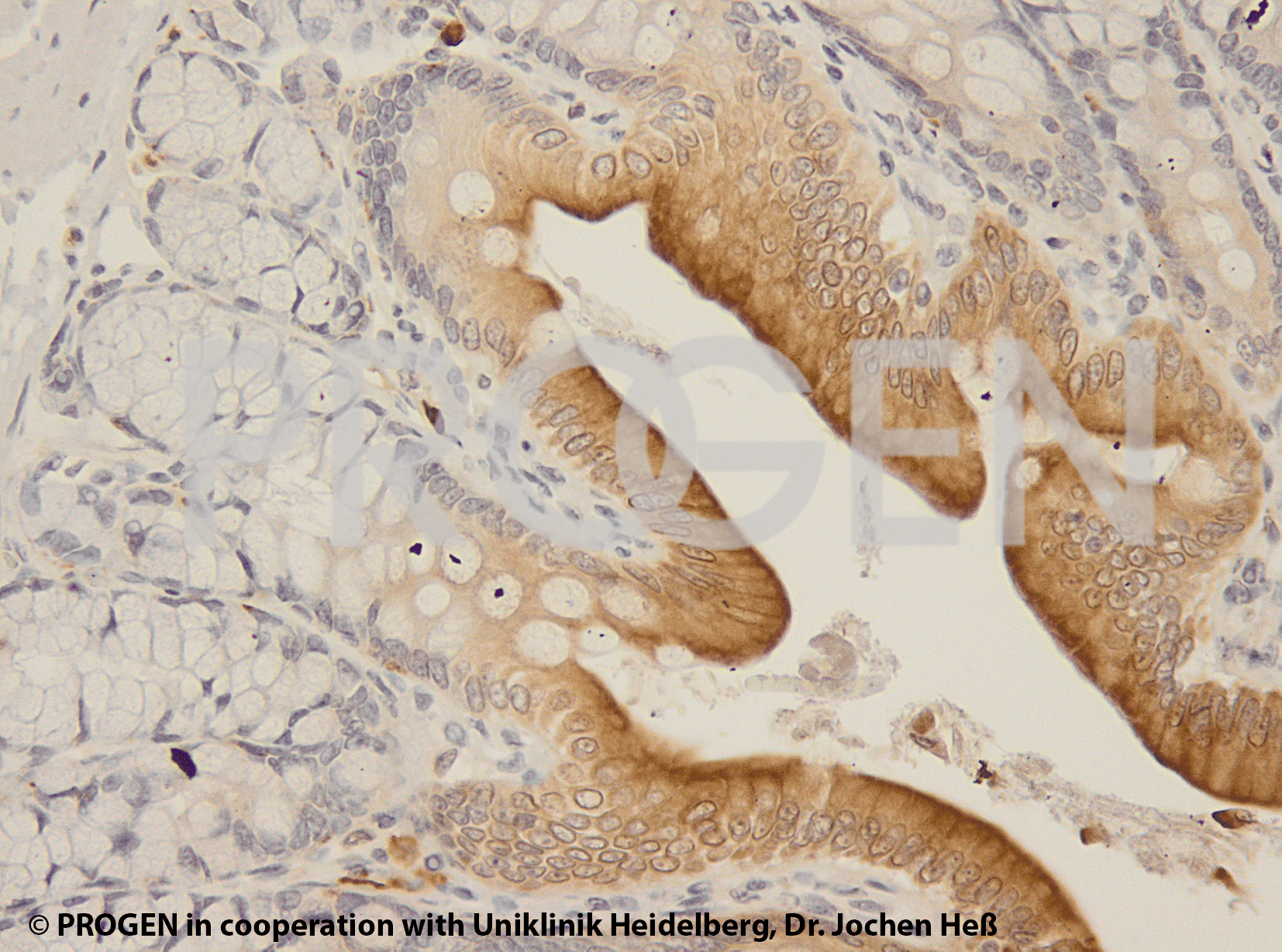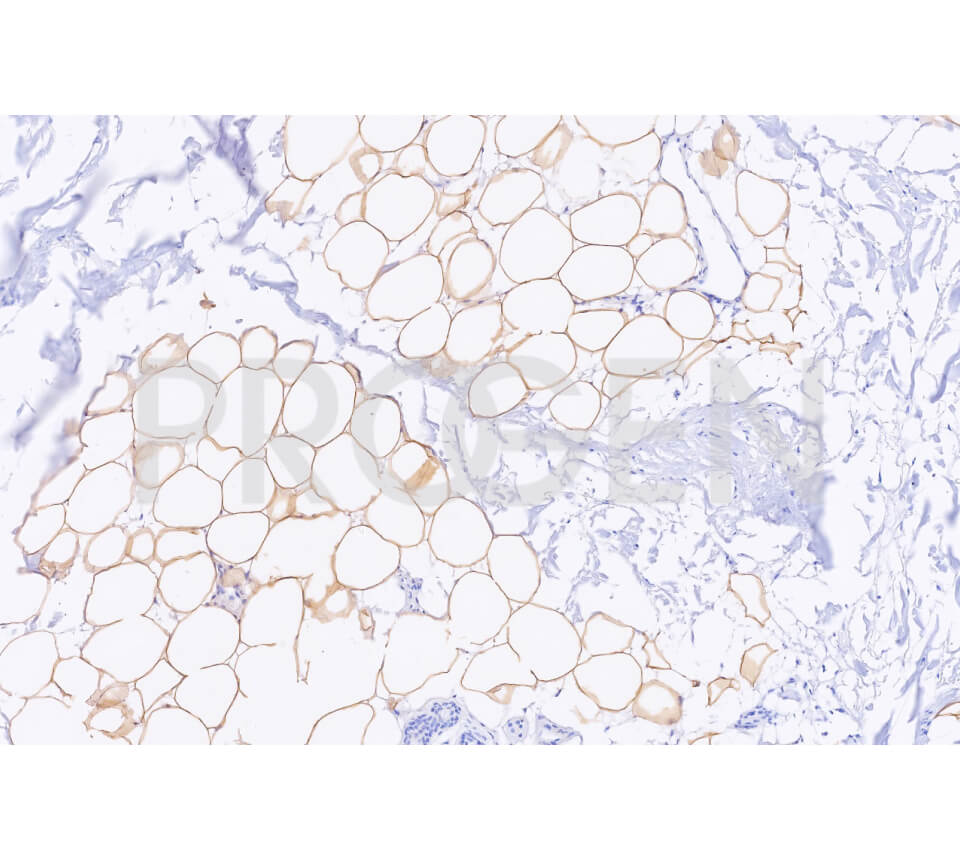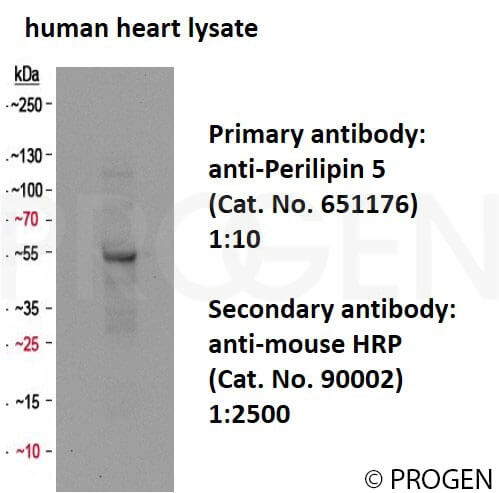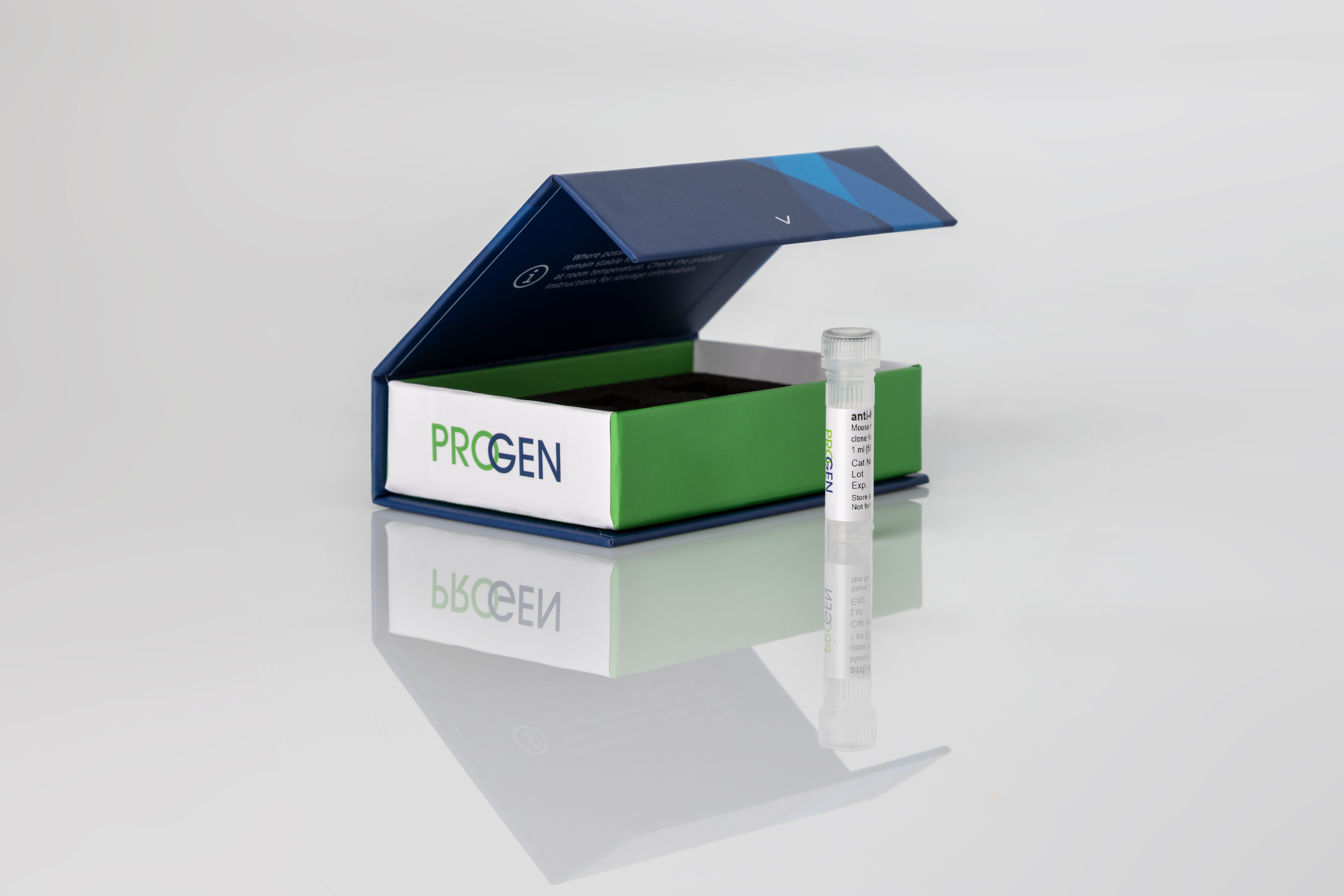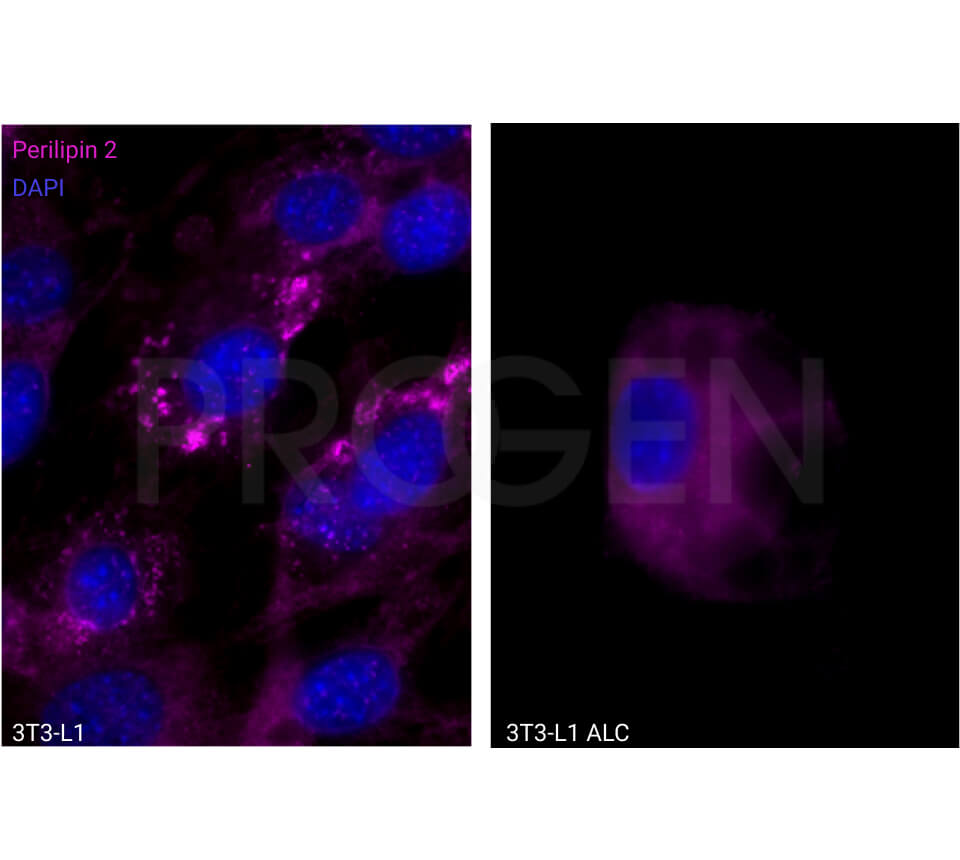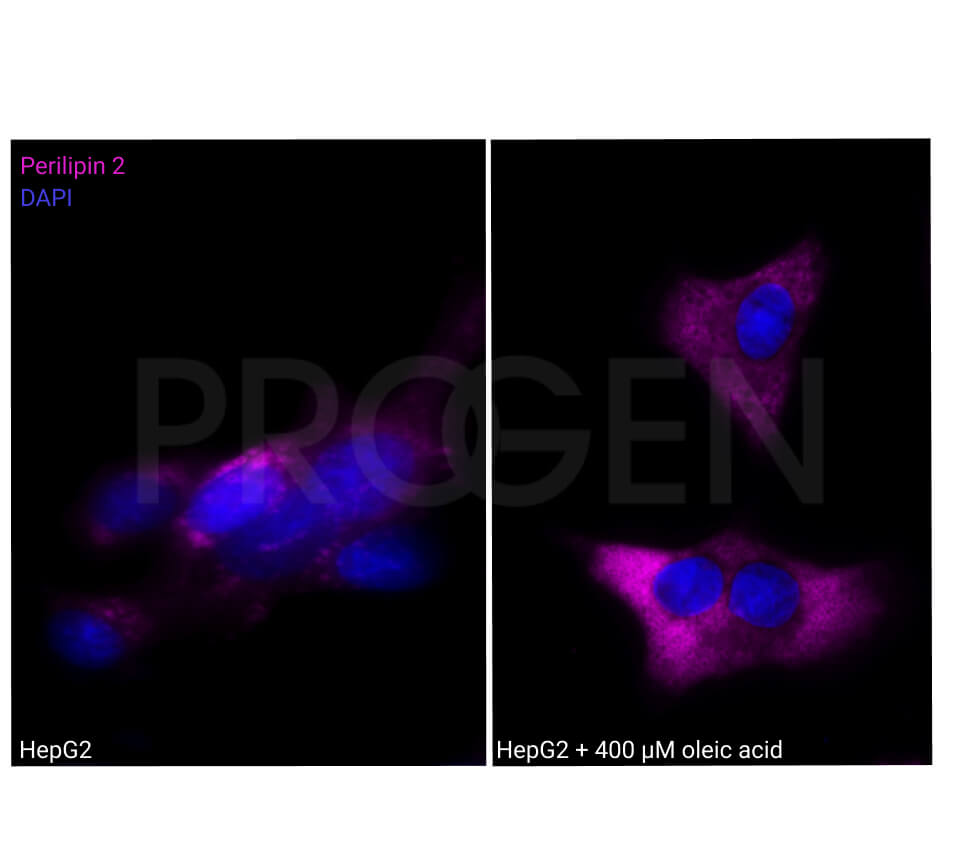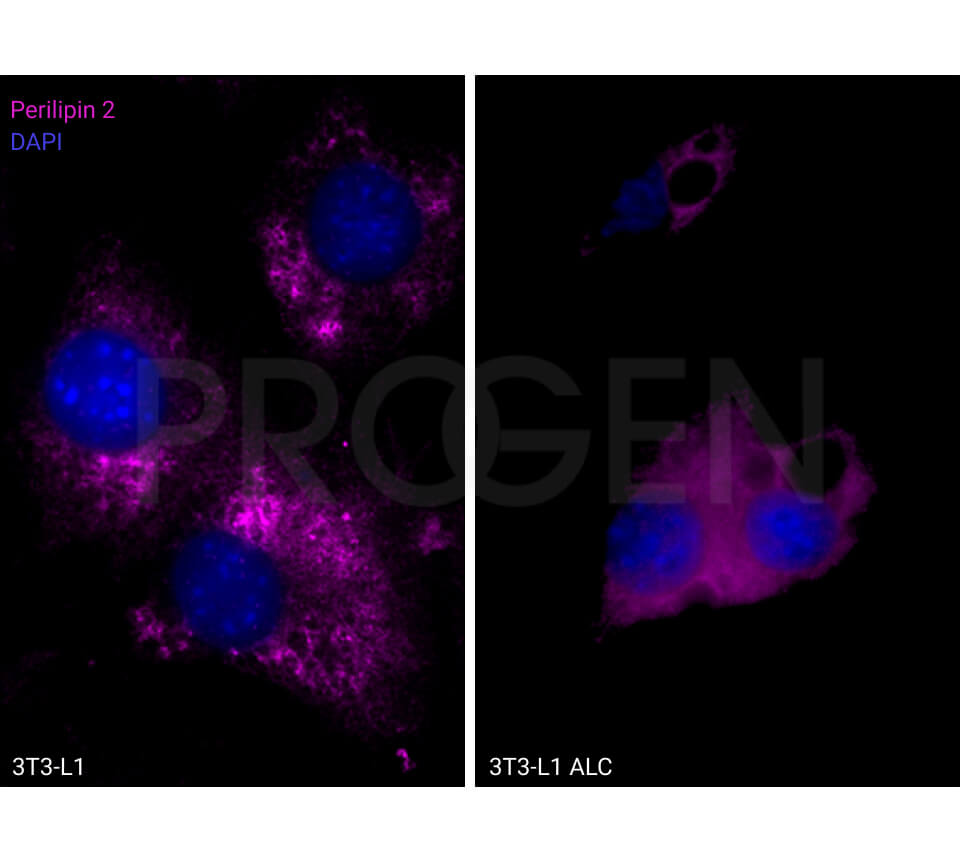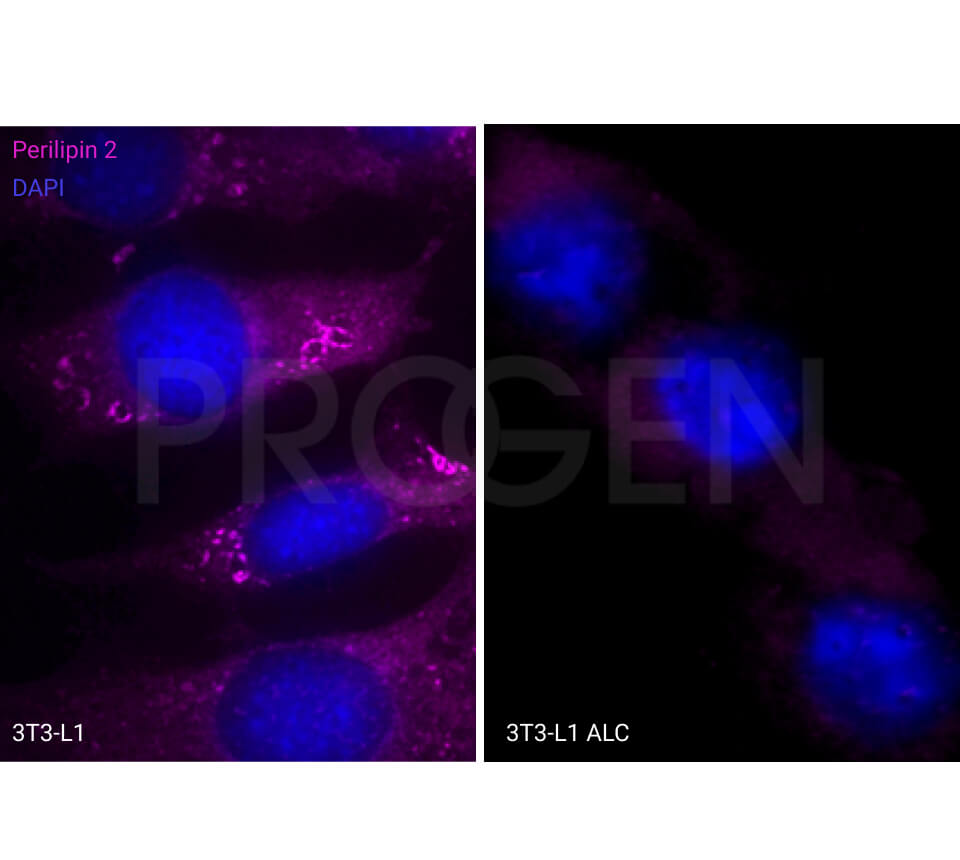anti-Perilipin 5 (N-terminus) guinea pig polyclonal, serum
- Guinea pig polyclonal
- Suitable for ICC/IF and IHC
- Reacts with human
Product description
| Quantity | 100 µl |
|---|---|
| Antibody Type | Polyclonal |
| Host | Guinea pig |
| Conjugate | Unconjugated |
| Application | ICC/IF, IHC |
| Purification | Stabilized antiserum |
| Reactivity | Human |
| Storage | Short term at 2-8°C; long term storage in aliquots at -20°C; avoid freeze/thaw cycles |
| Intended use | Research use only |
| Immunogen | Synthetic peptides (N-terminal aa 1-17/16-36 of human MLDP) |
| Formulation | Contains 0.09% sodium azide and 0.5% BSA |
| UniprotID | Q00G26 (Human) |
| Synonym | Perilipin-5, Lipid storage droplet protein 5, PLIN5, LSDP5, OXPAT, PAT-1 |
| Note | Centrifuge prior to opening |
Applications
| Tested applications | Tested dilutions |
|---|---|
| Immunocytochemistry (ICC)/ Immunofluorescence (IF) | Assay dependent |
| Immunohistochemistry (IHC) - frozen | 1:100-1:200 |
| Immunohistochemistry (IHC) - paraffin | 1:100-1:200 (microwave treatment recommended) |
Background
Polypeptide reacting: MLDP = myocardial lipid droplet protein (also described as OXPAT/PAT-1 and perilipin 5 or PLIN5), MW 50,844 (calculated from aa sequence data); apparent Mr 52,000 (after SDS-PAGE).
MLDP / PLIN5 pertains to the PLIN/PAT-family proteins, covering the surface of cytoplasmic lipid droplets and sharing a homologuous domain called PAT.
Additional PLIN/PAT proteins include adipophilin (ADRP, PLIN2), perilipin (PLIN1), and TIP47 (PLIN3) which are expressed in differentiation-related stages of lipid metabolism.
No cross-reactivity with additional PLIN/PAT proteins (including adipophilin/ADRP/PLIN2, perilipin/PLIN1, and TIP47/PLIN3) which are expressed in differentiation-related stages of lipid metabolism.
Tissue localization: MLDP/PLIN5 is positively detected in heart and skeletal muscle.
Reactivity on cultured cell lines: HaCat (human), SV80 (human).
References/Publications (3)
Downloads
Q & A's
Customer Reviews
Login
FAQs
The supernatant format contains FCS proteins from cell culture medium supplemented with FCS.
The serum antibodies contain other proteins present in serum.
Most of our liquid antibodies and reconstituted lyophilized antibodies may be stored for short term storage (up to 3 month) at 2-8°C. For long term storage we recommend to store the antibody at -20°C in aliquots. Please avoid freeze and thaw cycles.
Most of our conjugated antibodies should be stored at 2-8°C.
The individual storage conditions are mentioned on the datasheet.
- Methanol/ acetone fixation: Immerse slide in precooled (-20°C) methanol for 5 min, immerse in precooled (-20°C) acetone for 30-60 sec, let specimen air dry before antibody incubation.
- Methanol/ acetone fixation plus detergent permeabilization: After methanol/ acetone fixation and air-drying dip slide either in a solution containing 0.1-0.2% Triton X-100 in PBS or in 0.1% saponin in PBS for 1-5 min at room temperature (enhances accessibility of many cytoskeletal antigens).
- Air-drying of the section.
- Block with the serum of the species in which the secondary antibody was raised for 30 min.
- Incubation with 1st antibody 1 h at RT in moist chamber.
- Wash 3x with PBS.
- Incubation with appropriate fluorescent secondary antibody, 30-60 min at RT.
- Wash 3x with PBS.
- Immerse shortly into ethanol.
- Let air dry.
- Cover with mounting medium.
In guinea pigs the antibody concentration in serum varies from 10 to 20 mg/ml; specific antibodies represent normally about 0.1-1% of total IgG. Total protein concentration varies from 40 to 65 mg/ml, with the main constituent (about 60%) being albumin.

